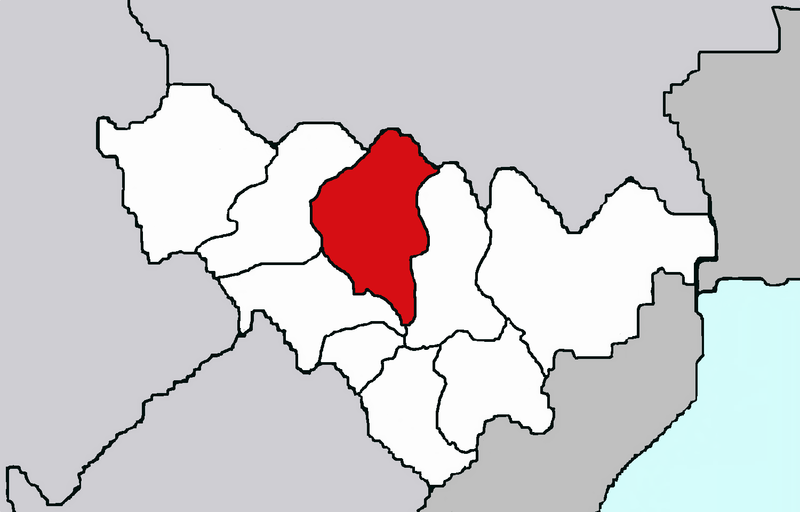And I found a interesting description of Mabosan/The wanpaoshan incident.
 Changchun
ChangchunThe Wanpaoshan Incident that occurred prior to the Mukden Incident at Wanpaoshan, a small village located some 18 miles north of Changchun, in Manchuria. The village is located in a low marshy area alongside the Itung River.wiki
A lease contract for rice-land between the Chinese landowners and the Chinese broker required the official approval of the Chinese authority
.......................................
This lad was sub-leased by the Chinese broker to the Korean tenants................
The digging of an irrigation ditch by the Koreans across land owned by Chinese farmers was the principal cause of local Chinese opposition.
.................................
The Chinese farmers demanded the cessation of work on the irrigation ditch and the evacuation of the Koreans................
The Chinese and Japanese authorities at Changchun agree upon a joint investigation............
Inclusive investigation.
The joint investigation, however, apparently failed to agree upon their findings...
The incident of July 1st
Out of this train of circumstances came the incident of July 1st, when a party of 400 Chinese farmers whose lands were cut by the irrigation ditch, armed with agricultural implements and pikes, drove the Koreans away and filled in much of the ditch. The Japanese consular police thereupon rifle fire to disperse the mob and to protect the Koreans but there were no casualties. The Chinese farmers withdrew and the Japanese police remained on the spot until the Koreans completed the ditch and the dam across the Itung River.
After the incident of July 1st the Chinese municipal authorities continued to protest to the Japanese Consul at Changchun against the action of the Japanese consular police and of the Koreans.
The anti-Chinese riots in Korea.
For more serious than Wanpashan affair was the reaction to this dispute in Chosen(Korea) In consequence of sensational account of the situation at Wanpaoshan, especially of the events of July 1st, which were printed in the Japanese and Korean press, a series of anti-Chinese riots occurred throughout Korea. These riots began at Jinsen on July 3rd. and spread rapidly to other cities.
Heavy loss of life and property among the Chinese residents.
Alleged responsibility of the Japanese authorities in Korea.
The Chinese state, on the basis of their official reports, that 127 Chinese were massacred and 393 wounded and that Chinese property to the value of 2500,00 yen was destroyed. They claim, moreover that the Japanese authorities in Korea were in adequate steps to prevent them and did not suppress them until great loss of Chinese life and property had resulted. The Japanese and Korean newspapers were not prevented from publishing sensational and incorrect accounts of the Wanpanoshan incident of July 1st which were of a character to arouse the hatred of the korean populace against the Chinese resident.
The Japanese claim, however, that these riots were due to the spontaneous outburst of racial feeling and that the Japanese authorities suppressed them as soon as possible.
The riots in Korea intensified the anti-Japanese boycott in China.....
The Japanese Government expressed regret for the anti-Chinese riots and offered compensation for the families of the dead.
From July 22nd until September 15th, there were negotiations and exchanges of notes between the Chinese and Japanese local central authorities over the Wanpaoshan affair. The Chinese maintained that the difficulties at Wanpaoshan were due to the fact that the Koreans were living where they no right to be, since their privileges of residing and leasing of land did not extend outside of Chientao District in accordance, with the Chientao Agreement.......
The Japanese position.
The Japanese on the other hand, insisted that the Koreans had a treaty right to reside and lease land at Wanpanosha, since their privileges were not limited to those specified in the Chientao Agreement but included the rights , granted to Japanese subjects in general of residing and leasing land throughout South Manchuria. The status of the Koreans, it was claimed, was identical with that of other Japanese subjects. The Japanese also urged that the korean had undertaken their
rice cultivation project in good faith an that the Japanese authorities could not assume responsibility for the irregularities of the Chinese broker who arranged the lease. The Japanese Government consented to the withdrawal of the consular police from Wanpaoshan, but the korean tenants remained and continued to cultivate their rice-lands.
A complete solution of the Wanpaoshan affair had not been reached by September 1931.
.....................................................................................
1) This is very different from the Korean account of the massacre in which a Korean historian blames Japan for Koreans killing Chinese. The conspiracy theory goes so far as to claim that Japanese government plotted the incident.
2) The description shows that Japanese government treated Koreans equal to Japanese citizens.
No comments:
Post a Comment